ড. মহিউদ্দিন আহমেদ একজন গবেষক ও শিক্ষক, যিনি সাইবারসিকিউরিটি, মেশিন লার্নিং এবং ডেটা অ্যানালিটিকস ক্ষেত্রে কাজ করছেন। তিনি ২০১১ সালে ইসলামিক ইউনিভার্সিটি অফ টেকনোলজি (IUT), বাংলাদেশ থেকে কম্পিউটার সায়েন্সে ব্যাচেলর ডিগ্রি (ফার্স্ট ক্লাস উইথ অনার্স) সম্পন্ন করেন। বাংলাদেশের Green University-তে সংক্ষিপ্তকাল শিক্ষকতার পর তিনি অস্ট্রেলিয়ার University of New South Wales (UNSW)-এ পিএইচডি করেন, যেখানে তার গবেষণার বিষয় ছিল বৃহৎ ডাটা সংক্ষেপণ ও সাইবারসিকিউরিটি নিশ্চিত করার জন্য নতুন অ্যালগরিদম তৈরি।
বর্তমানে তিনি Canberra Institute of Technology (CIT)-এর Center for Cybersecurity and Games-এ শিক্ষকতা ও গবেষণা করছেন। তার কাজের কেন্দ্রবিন্দু হলো False Data Injection Attack, ব্লকচেইন, ডিপ লার্নিং এবং সাইবার-বায়োসিকিউরিটি। ড. আহমেদ International Journal of Computers and Applications-এর অ্যাসোসিয়েট এডিটর এবং Cambridge Scholars Publishing-এর এডিটোরিয়াল অ্যাডভাইজরি বোর্ড সদস্য। তিনি বর্তমানে অস্ট্রেলিয়ায় অবস্থান করছেন এবং গবেষণা, শিক্ষা ও নীতিনির্ধারণের সংযোগ স্থাপনের কাজ করছেন।
💬 প্রশ্নোত্তর পর্ব:
প্রশ্ন: আপনার সমন্ধে একটু বলুন।
উত্তর: আমি ঢাকার খিলগাঁও এলাকায় জন্মগ্রহণ করি, তিন সন্তানের মধ্যে সর্বকনিষ্ঠ। ক্লাস ছয় পর্যন্ত খিলগাঁও গভর্নমেন্ট হাই স্কুলে পড়াশোনা করি, এরপর ছয় বছর সিলেট ক্যাডেট কলেজে কাটে। বাবা চাইতেন আমি আর্মি অফিসার হই, কিন্তু কম্পিউটার সায়েন্সে আগ্রহের কারণে আমি ২০১১ সালে IUT থেকে ব্যাচেলর সম্পন্ন করি। Green University-তে শিক্ষকতা করার পর UNSW অস্ট্রেলিয়ায় পিএইচডি করি। PhD শেষে Malaysia-এর MIMOS AI division-এ কাজ করি এবং পরে CIT, Canberra-তে শিক্ষক হিসেবে যোগ দিই। বর্তমানে CIT-এর Center for Cybersecurity and Games-এ শিক্ষকতা ও গবেষণা চালাচ্ছি। শখ হলো গল্পের বই পড়া এবং খেলনা গাড়ি জমানো।
প্রশ্ন: পিএইচডিতে আপনার গবেষণার বিষয় কী ছিল?
উত্তর: আমার পিএইচডি গবেষণা ছিল মেশিন লার্নিং ও সাইবারসিকিউরিটি কেন্দ্রিক। বড় ডাটা বিশ্লেষণ সময়সাপেক্ষ এবং ব্যয়বহুল। আমি নতুন অ্যালগরিদম (unsupervised learning-based summarization) প্রস্তাব করি যা ডাটা সংক্ষেপণ এবং সাইবারসিকিউরিটি নিশ্চিত করতে সহায়ক। এই গবেষণা বিভিন্ন জার্নাল, কনফারেন্স এবং বইয়ের অধ্যায়ে প্রকাশিত হয়েছে। UNSW-এ হাই ইমপ্যাক্ট রিসার্চ পাবলিকেশন অ্যাওয়ার্ড এবং বিভিন্ন কনফারেন্স বৃত্তি পেয়েছি।
প্রশ্ন: বর্তমানে আপনি কোন বিষয়ে কাজ করছেন?
উত্তর: আমি সাইবারসিকিউরিটি ও গেমস ডেভেলপমেন্টে শিক্ষকতা করি এবং কয়েকটি গবেষণা প্রজেক্টে কাজ করছি। একটি বড় চ্যালেঞ্জ হলো False Data Injection Attack শনাক্ত করা। হ্যাকাররা ভুল ডাটা প্রবেশ করিয়ে হাসপাতাল বা সেনসিটিভ সিস্টেমে ক্ষতি করতে পারে। এই সমস্যার সমাধানে আমি ডিপ লার্নিং ও ব্লকচেইন ব্যবহার করছি। এছাড়া Cyber-biosecurity নিয়ে কাজ করছি যেখানে DNA সিকোয়েন্স বদলানো হতে পারে। Data Analytics নিয়ে একটি বই সম্পাদনার কাজও চলমান।
প্রশ্ন: সাইবারসিকিউরিটি ইন্ডাস্ট্রি সম্পর্কে আপনার মত কী?
উত্তর: ইন্ডাস্ট্রি এবং একাডেমিয়ার মাঝে অনেক পার্থক্য রয়েছে। সিসকো সার্টিফিকেশন ও গবেষণার কাজের মধ্যে পার্থক্য কমানো জরুরি। বিদেশে সাইবারসিকিউরিটি standalone degree হিসেবে পড়ানো হয়। প্র্যাকটিক্যাল ও থিওরিটিক্যাল নলেজের সামঞ্জস্য থাকলে সাইবারসিকিউরিটি সহজ হবে।
প্রশ্ন: তথ্যের গুরুত্ব এবং পরিবর্তন সম্পর্কে আপনি কী ভাবছেন?
উত্তর: তথ্য আমাদের জীবনের অবিচ্ছেদ্য অংশ। নতুন তথ্যের উপর নির্ভরতা বাড়ছে, যা নতুন কর্মসংস্থান সৃষ্টি করছে। তথ্য বিশ্লেষণ ও নিরাপত্তায় দক্ষতা থাকা জরুরি। ইন্টারনেট ব্যবহারকারীদের সচেতন হওয়া প্রয়োজন, নাহলে অপরাধীদের শিকার হতে পারে। গণসচেতনতা বৃদ্ধিতে কাজ করা খুবই জরুরি।
প্রশ্ন: কৃত্রিম বুদ্ধিমত্তা (AI) নিয়ে আপনার মতামত কী?
উত্তর: AI কম্পিউটার সায়েন্সের গুরুত্বপূর্ণ একটি অংশ। ইন্টারনেট ভিত্তিক জীবনে AI-এর ভূমিকা অপরিসীম। AI-এর ভালো এবং খারাপ দুই দিক আছে। যেমন, Google বা Facebook-এর রেকমেন্ডেশন আমাদের জীবনে প্রভাব ফেলে। AI স্বাস্থ্যসেবা, ইন্টারনেট অফ এভরিথিং এবং দৈনন্দিন জীবনে জীবনযাত্রার মান উন্নয়নে সহায়ক।
প্রশ্ন: Taylor & Francis Group-এ আপনি কী ধরনের কাজ করছেন?
উত্তর: আমি International Journal of Computers and Applications-এর অ্যাসোসিয়েট এডিটর হিসেবে সাইবারসিকিউরিটি ও ডেটা মাইনিং বিষয়ে পেপার সম্পাদনা করি। এছাড়া Cambridge Scholars Publishing-এর এডিটোরিয়াল অ্যাডভাইজারি বোর্ডের সদস্য।
প্রশ্ন: অস্ট্রেলিয়াতে কাজ করতে কেমন লাগছে?
উত্তর: এখানে শিক্ষকদের ছাত্রদের কাছে জবাবদিহিতা থাকে। লেকচার আপডেট রাখা এবং স্টেট-অফ-টি-আর্ট প্রযুক্তি শেখানো চ্যালেঞ্জিং হলেও সন্তুষ্টিদায়ক।
প্রশ্ন: আপনার ভবিষ্যত পরিকল্পনা কী?
উত্তর: আমি Data Analytics গবেষণা কেন্দ্র গড়ে তোলার ইচ্ছা রাখি এবং multidisciplinary টীম গঠন করতে চাই। আগামী বছর Australian National University থেকে National Security Policy-তে মাস্টার্স করার পরিকল্পনা আছে। গবেষণা ও পলিসি মেকিং মিলিয়ে জনগণের সেবা করা মূল লক্ষ্য।
প্রশ্ন: তরুণদের জন্য কোন পরামর্শ আছে?
উত্তর: কখনও হাল ছাড়বেন না। কঠোর পরিশ্রম করুন এবং বিনম্র থাকুন।
ড. মহিউদ্দিন আহমেদের গবেষণা AI, সাইবারসিকিউরিটি ও ডেটা অ্যানালিটিক্সে গুরুত্বপূর্ণ অবদান রাখছে। স্বাস্থ্যসেবা, নিরাপদ সিস্টেম ও প্রযুক্তিগত উদ্ভাবনে তার কাজের প্রভাব অনস্বীকার্য। “বিজ্ঞানী অর্গ” টিম ড. আহমেদের গবেষণার সাফল্যের জন্য শুভকামনা জানাচ্ছে এবং আশা করছে তার পথ বাংলাদেশের তরুণ বিজ্ঞানীদের অনুপ্রেরণার উৎস হবে।
Exploring Machine Learning and Cybersecurity Innovations – Dr. Mohiuddin Ahmed
Dr. Mohiuddin Ahmed is a researcher and educator specializing in cybersecurity, machine learning, and data analytics. He completed his Bachelor’s degree in Computer Science with First Class Honors from the Islamic University of Technology (IUT), Bangladesh, in 2011. After a brief teaching stint at Green University of Bangladesh, he pursued his PhD at the University of New South Wales (UNSW), Australia, where his research focused on developing novel unsupervised learning algorithms for data summarization and cybersecurity applications.
Currently, Dr. Ahmed serves as a faculty member at the Canberra Institute of Technology (CIT), within the Center for Cybersecurity and Games, conducting both teaching and research. His work addresses contemporary challenges such as false data injection attacks in sensitive systems, cyber-biosecurity threats, and applications of AI and blockchain for data protection. He also contributes as an associate editor for the International Journal of Computers and Applications and serves on editorial advisory boards for cybersecurity publications. Dr. Ahmed is based in Canberra, Australia, actively bridging research, policy, and education.
💬 Q&A Session:
Q: Can you tell us a little about yourself?
A: I was born in Khilgaon, Dhaka, the youngest of three siblings. I studied at Khilgaon Government High School until class six, then spent six formative years at Sylhet Cadet College. My father wished for me to become an army officer, but I was drawn to computer science. I earned my Bachelor’s degree with First Class Honors from the Islamic University of Technology (IUT) in 2011. After teaching briefly at Green University of Bangladesh, I pursued a PhD at UNSW, Australia, where I spent four years and eight months developing my research. Post-PhD, I worked at Malaysia’s MIMOS in the AI division before joining CIT in Canberra. Currently, I teach and research at CIT’s Center for Cybersecurity and Games. I enjoy reading storybooks and collecting toy cars.
Q: What was your PhD research about?
A: My PhD focused on machine learning and cybersecurity. Big data analysis can be time-consuming and expensive, so I developed new algorithms—particularly unsupervised learning-based summarization—to streamline the process. These algorithms help enhance cybersecurity and have been published in journals, conferences, and book chapters. I received several research awards at UNSW and participated in conferences through competitive scholarships.
Q: What are you currently working on?
A: I teach cybersecurity and game development while leading several research projects. One major challenge is detecting false data injection attacks, where hackers insert incorrect data into systems like hospitals, which can be critical in healthcare. I’m exploring deep learning and blockchain solutions for this problem. Another project focuses on cyber-biosecurity, including preventing DNA sequence tampering. I’m also finalizing a book on Data Analytics to be published by CRC Press in July.
Q: How do you view the cybersecurity industry?
A: There is a gap between industry practice and academic research. Certifications like Cisco teach applied skills, while research requires theoretical insight. Bridging this gap is essential. Countries abroad offer standalone degrees in cybersecurity, blending practical and theoretical knowledge, which I believe will make cybersecurity more effective.
Q: How do you perceive the growing role of data in our lives?
A: I am optimistic. Increasing data creates new employment opportunities, but analyzing and securing data requires essential skills, regardless of one’s profession. Internet users should develop awareness and competency to avoid falling prey to cybercrime. Public education is as important as formal training.
Q: Can you tell us about Artificial Intelligence (AI) and its role?
A: AI is a crucial area in computer science. With life increasingly internet-based, understanding AI is vital. It has both positive and negative aspects. For example, AI-driven recommendations on platforms like Google or Facebook can improve user experience or lead to unintended purchases. AI plays a growing role in improving healthcare outcomes and daily life, particularly through Internet of Everything applications.
Q: What kind of work do you do at Taylor & Francis Group?
A: I serve as an associate editor under the Editor-in-Chief for the International Journal of Computers and Applications, managing papers on cybersecurity and data mining. I also serve on the editorial advisory board for Cambridge Scholars Publishing in cybersecurity.
Q: How has your experience been working in Australia?
A: Australia encourages accountability among educators toward students. Teaching here requires staying updated with lectures and state-of-the-art technologies. It is challenging but rewarding.
Q: What are your future plans?
A: I aim to establish a Data Analytics research center with a multidisciplinary team to share research outcomes widely. I also plan to pursue a Master’s in National Security Policy at the Australian National University to integrate research with policy-making. My goal is to serve the public by combining research and policy.
Q: Any advice for young readers who want to become scientists?
A: Never give up. Work hard and stay humble.
Dr. Mohiuddin Ahmed’s research at the intersection of AI, cybersecurity, and data analytics addresses some of today’s most pressing technological challenges. From healthcare system security to innovative AI applications, his work reflects a commitment to both research excellence and practical impact. The biggani.org team extends its best wishes to Dr. Ahmed for continued success, hoping his journey inspires young scientists in Bangladesh and beyond.
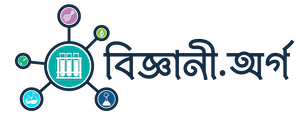
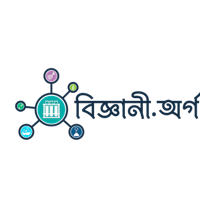
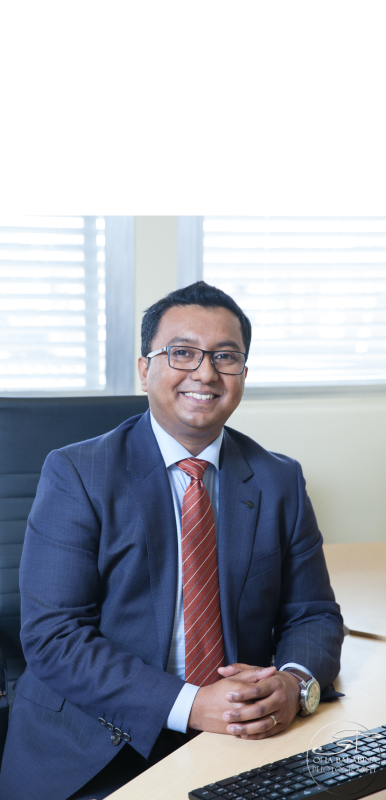

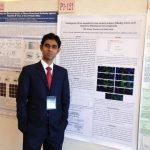

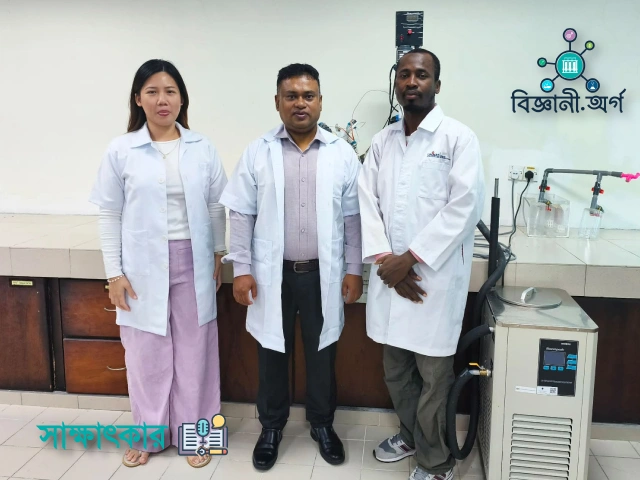
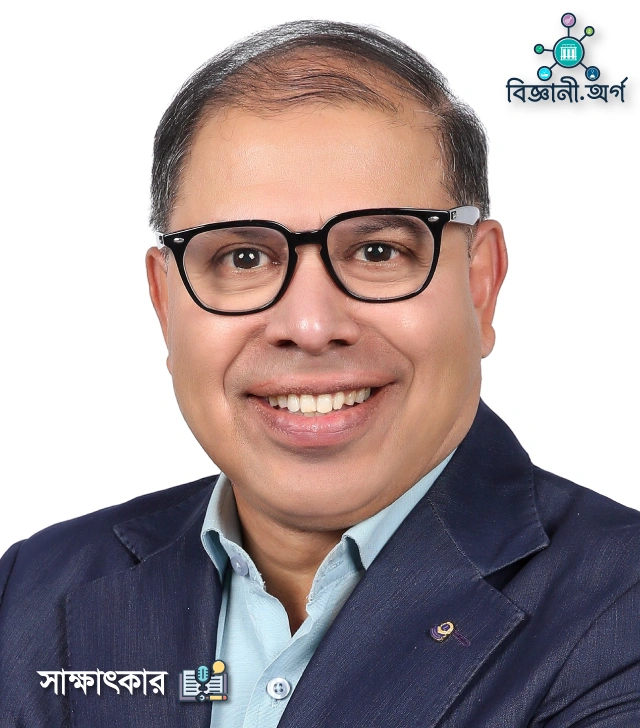
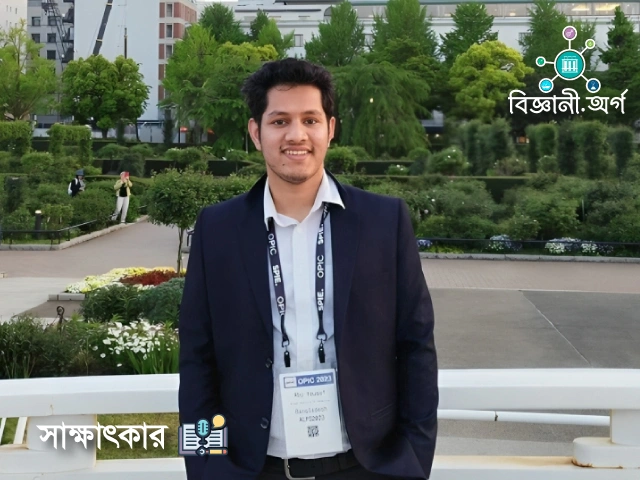
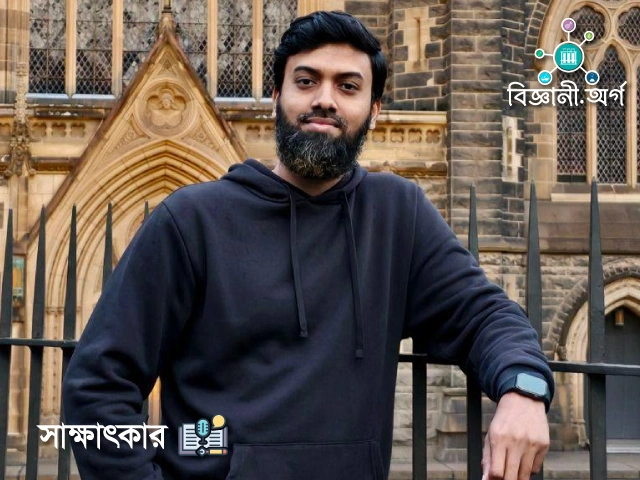
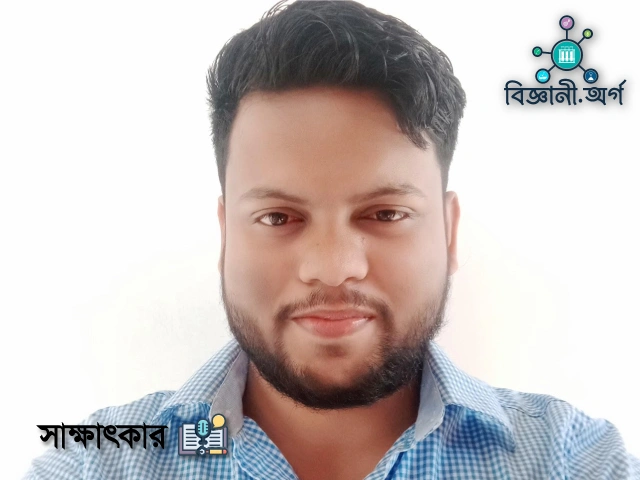
Leave a comment